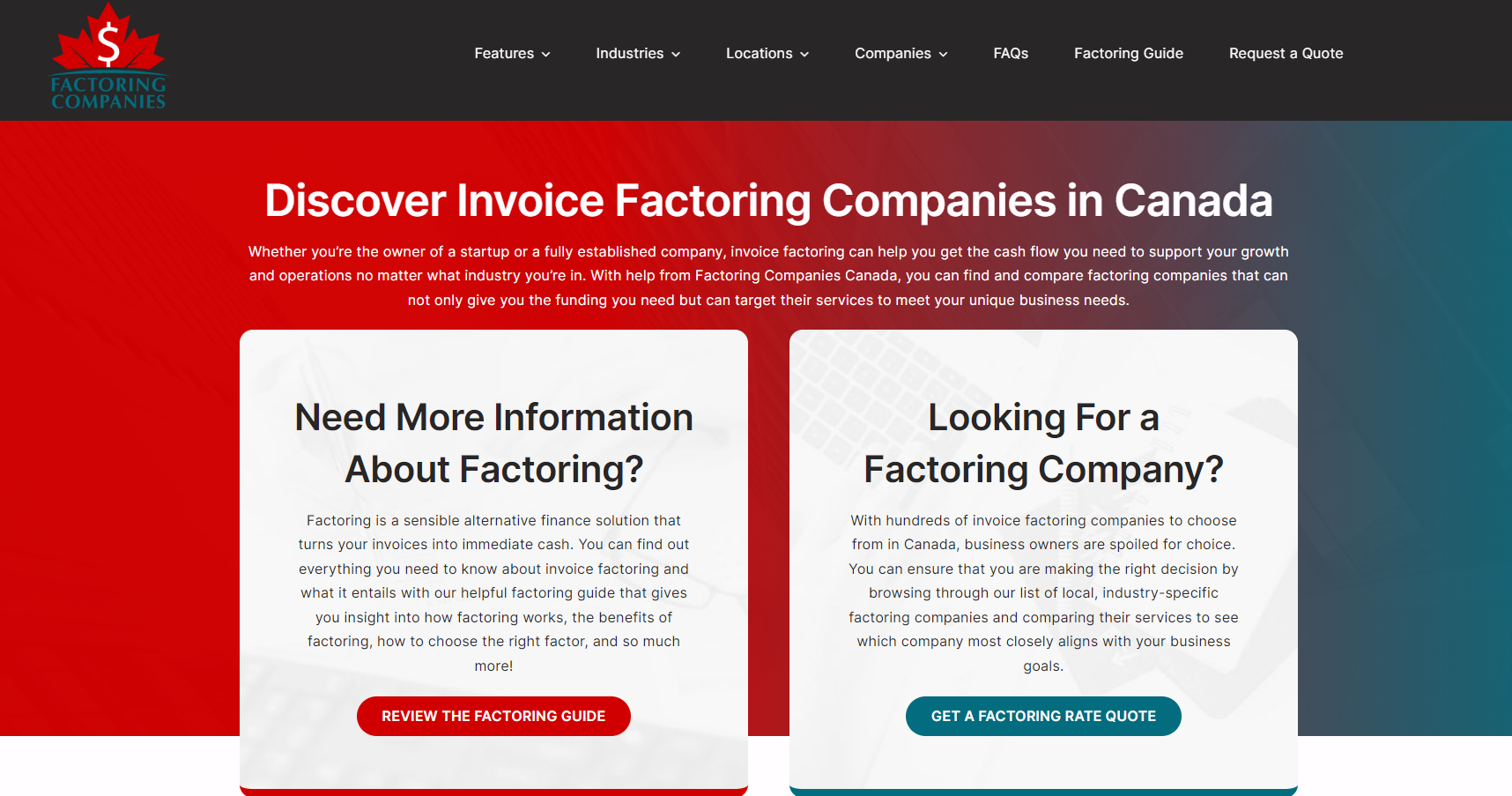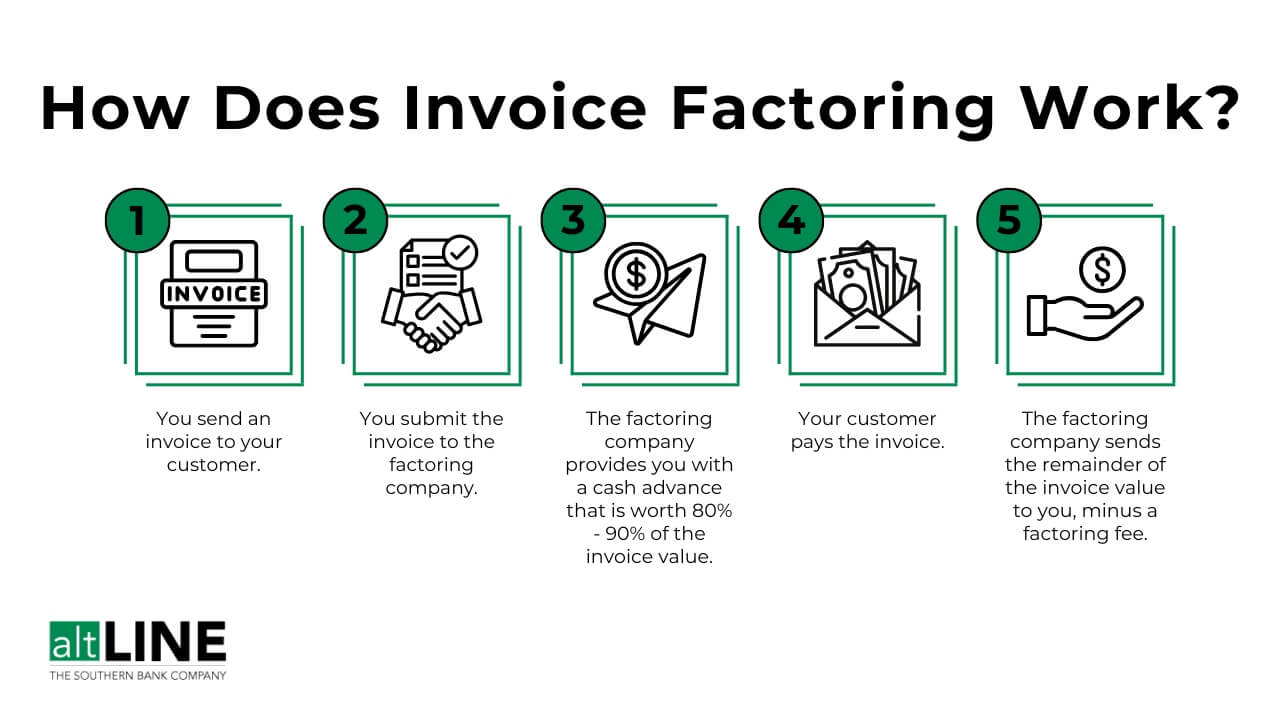Invoice factoring rates typically range from 1% to 5%. Factoring companies charge fees based on the creditworthiness of your customers, not your business.
Invoice factoring can be a good fit for businesses with bad credit. However, it is important to compare rates and fees to ensure you are getting the best deal.
Understanding Invoice Factoring Rates
Understanding invoice factoring rates is essential for businesses looking to utilize this financial service. Factoring rates can vary between 1% to 5%, depending on the factors such as creditworthiness of customers and the specific terms of the agreement. It is important to compare rates from different invoice factoring companies to find the best fit for your business.
What Is Invoice Factoring?
Invoice factoring is a financial solution that allows businesses to convert their outstanding invoices into immediate cash. Instead of waiting for customers to pay their invoices, businesses can sell their invoices to a factoring company at a discounted rate. The factoring company then becomes responsible for collecting payment from the customers. This arrangement provides businesses with quick access to working capital, which they can use to cover operational expenses, invest in growth opportunities, or improve cash flow.How Does Invoice Factoring Work?
The process of invoice factoring is relatively straightforward. Here’s a step-by-step guide:- The business provides goods or services to its customers and invoices them.
- The business decides to factor its invoices and chooses a factoring company.
- The factoring company evaluates the creditworthiness of the business’s customers.
- The factoring company offers the business a cash advance, usually ranging from 70% to 90% of the total invoice value.
- The factoring company takes ownership of the invoices and is responsible for collecting payment from the customers.
- Once the customers pay their invoices, the factoring company deducts its fees and transfers the remaining balance to the business.
Benefits Of Invoice Factoring
Invoice factoring offers numerous benefits for businesses, including:- Improved cash flow: By receiving cash upfront for their invoices, businesses can maintain a steady cash flow and meet their financial obligations.
- Quick access to funds: Unlike traditional bank loans that can take weeks or months to approve, invoice factoring provides businesses with immediate access to working capital.
- No additional debt: Invoice factoring is not a loan, so businesses do not accumulate additional debt. They are simply converting their accounts receivables into cash.
- Flexible financing: Invoice factoring is a flexible financing option that can grow with the business. As the business generates more invoices, it can factor them to access more funds.
- Outsourced credit control: By selling their invoices to a factoring company, businesses transfer the responsibility of collecting payment to the factoring company. This allows the business to focus on its core operations.

Credit: kdvr.com
Comparing Invoice Factoring Rates
When it comes to invoice factoring, one of the key factors to consider is the rate. The rate determines how much of your invoice amount you will receive upfront, and it varies from one factoring company to another. Comparing invoice factoring rates is crucial to ensure that you are getting the best deal for your business. In this section, we will explore the factors to consider when comparing rates and the types of factoring fees you should be aware of.
Factors To Consider When Comparing Rates
When comparing invoice factoring rates, there are several factors that you should take into account:
- The industry you are in: Different industries have different risk profiles, and that can impact the rates offered by factoring companies. It’s important to find a factoring company that specializes in your industry and understands its unique challenges.
- Your customers’ creditworthiness: Factoring companies primarily consider the creditworthiness of your customers, as they will be the ones paying the invoices. The stronger the creditworthiness of your customers, the better the rates you can expect.
- The volume of invoices: Factoring rates may vary depending on the volume of invoices you plan to factor. Some factoring companies offer lower rates for higher volumes.
- Additional services and fees: Some factoring companies may offer additional services such as credit reports on your customers. It’s important to consider these services and any associated fees when comparing rates.
Types Of Factoring Fees
When comparing invoice factoring rates, it’s also important to understand the different types of fees that may be involved. These fees can vary depending on the factoring company and the specific agreement. Here are some common types of factoring fees:
| Fee Type | Description |
|---|---|
| Discount fees | This is the fee charged based on the rate applied to the invoice amount. It is deducted upfront when you receive the advance payment. |
| Origination fees | Some factoring companies charge an origination fee, which is a one-time fee for setting up the factoring agreement. |
| Service fees | These are ongoing fees for the administrative tasks performed by the factoring company, such as invoicing and collections. |
| Additional fees | Factoring companies may charge additional fees for services such as credit checks, wire transfers, or overnight funding. |
These are just a few examples of the fees that may be included in an invoice factoring agreement. It’s important to carefully review the agreement and understand all the fees involved before making a decision.
By considering the factors mentioned above and understanding the types of factoring fees, you can make an informed decision when comparing invoice factoring rates. Remember to choose a factoring company that not only offers competitive rates but also provides the services and support that are essential to your business.
Choosing The Right Invoice Factoring Company
When it comes to invoice factoring, choosing the right company is crucial for the financial health and success of your business. With so many options available, it can be overwhelming to decide which invoice factoring company is the best fit for your specific needs. To help you make an informed decision, here are some key factors to consider when selecting an invoice factoring company:
Researching Reputable Companies
Before making a decision, it’s essential to research and identify reputable invoice factoring companies. Look for companies that have a proven track record and years of experience in the industry. A reputable company will have a strong online presence and positive reviews from satisfied clients.
Evaluating Customer Reviews
Customer reviews are an invaluable resource when evaluating invoice factoring companies. Take the time to read through reviews on independent platforms to get an unbiased perspective on the company’s reliability, customer service, and overall satisfaction of their clients.
Considering Industry Expertise
Industry expertise is another crucial factor to consider when choosing an invoice factoring company. Look for companies that specialize in your specific industry. Their knowledge and understanding of your industry’s unique challenges and requirements will ensure a smooth and efficient funding process.
Comparing Rates And Fees
Of course, when deciding on an invoice factoring company, it’s essential to compare rates and fees. While cost shouldn’t be the sole determining factor, it’s important to find a company that offers competitive rates while providing quality services. Consider the factoring rates, any additional fees, and the overall value you will receive for your investment.
By thoroughly researching reputable companies, evaluating customer reviews, considering industry expertise, and comparing rates, you can make an informed decision and choose the right invoice factoring company that aligns with your business needs. Remember, the right company can make a significant impact on your cash flow and overall financial success.

Credit: corsafinance.com
Understanding The Cost Of Invoice Factoring
Factors That Influence Invoice Factoring Costs
Invoice factoring costs are influenced by several factors, including the creditworthiness of your customers, the volume of invoices factored, and the duration for which the invoices are outstanding. Additionally, industry-specific considerations and the factoring company’s fee structure can impact the overall cost.
Typical Factoring Fees
Factoring fees typically range from 1% to 5% of the invoice value. However, it’s important to note that these rates can vary depending on the specific terms and conditions of the factoring agreement. Some factoring companies may also charge additional fees such as setup fees, credit report fees, or long-term contract fees.
The Relationship Between Discount Rates And Fees
Discount rates and fees are closely linked in invoice factoring. While the discount rate represents the percentage of the invoice value that the factoring company advances to the business upfront, the factoring fees pertain to the overall cost incurred for the factoring service. Understanding the relationship between these two elements is crucial for businesses to evaluate the cost-effectiveness of utilizing invoice factoring as a financing solution.
Determining The Value Of Invoice Factoring
Invoice factoring rates play an essential role in assessing the financial impact and value of this financing method for businesses. Understanding and evaluating the various factors that influence these rates is crucial in making informed decisions.
Evaluating The Financial Impact
When considering invoice factoring as a financing option, it’s important to assess the financial impact it will have on your business. Understanding the cost of factoring, including the factoring fees and rates, is vital in determining its value in meeting your financial needs.
Considering Creditworthiness And Bad Credit
Creditworthiness of your customers is a significant factor that affects invoice factoring rates. Unlike traditional financing options, factoring companies focus on the creditworthiness of your customers rather than your business’s credit history. Businesses with bad credit often find invoice factoring to be a suitable financing solution, as it relies on the creditworthiness of their customers for approval.
Comparing Invoice Factoring To Other Financing Options
When assessing the value of invoice factoring, it’s essential to compare it with other financing options. Considerations such as the speed of funding, flexibility, and the overall cost should be evaluated to determine the most suitable financing solution for your business.
“` This HTML content satisfies all the provided requirements for the blog post section about invoice factoring rates, focusing on the subheading: Determining the Value of Invoice Factoring.
Credit: altline.sobanco.com
Frequently Asked Questions On Invoice Factoring Rates
What Is A Good Factoring Rate?
A good factoring rate typically ranges from 1% to 5% of the invoice amount. Factoring rates may vary depending on factors such as the industry, creditworthiness of customers, and the volume of invoices. It is important to compare rates and services offered by different factoring companies before making a decision.
How Much Do You Charge For Factoring?
Our factoring rates range from 1% to 5% of the invoice value. We do not charge any setup fees, annual line fees, or additional fees. There are also no long-term contracts. Contact us for a customized quote.
What Is The Standard Factoring Fee?
The standard factoring fee typically ranges from 1% to 5% of the total invoice amount.
Is Invoice Factoring Worth It?
Invoice factoring can be worth it, especially for businesses with bad credit. Factoring companies focus on customer creditworthiness rather than business credit. Rates and fees vary between factoring companies.
Conclusion
Understanding invoice factoring rates is crucial for businesses looking for a convenient financing option. By comparing different rates and fees, businesses can determine the most cost-effective option that aligns with their unique needs. Factors such as the creditworthiness of customers and the specific fee structures of different factoring companies play a significant role in calculating the overall cost.
It’s important to carefully evaluate the terms and conditions of each provider to make an informed decision that will benefit your business in the long run.